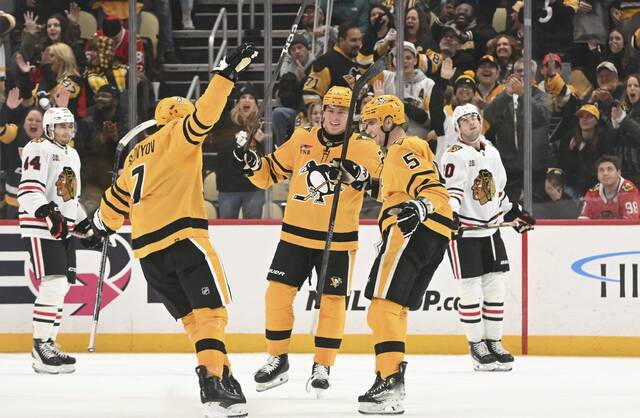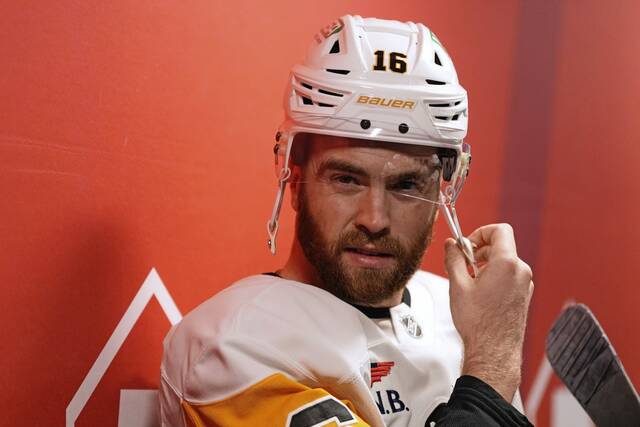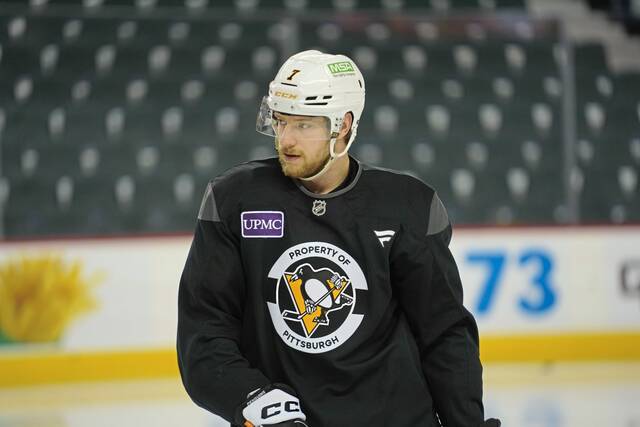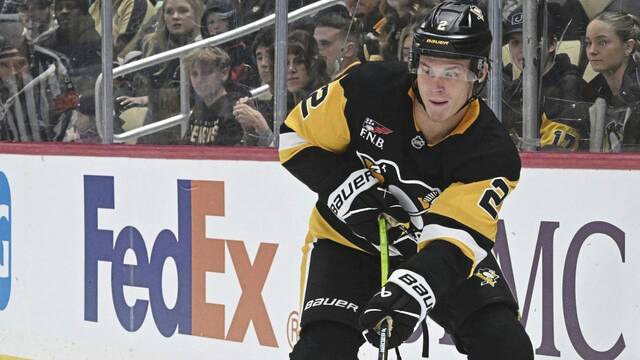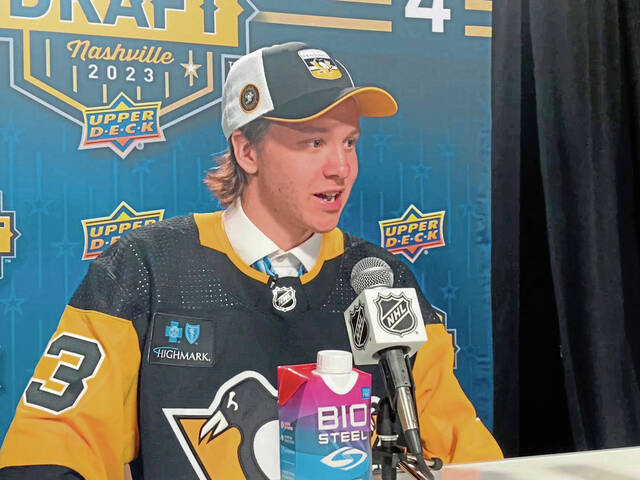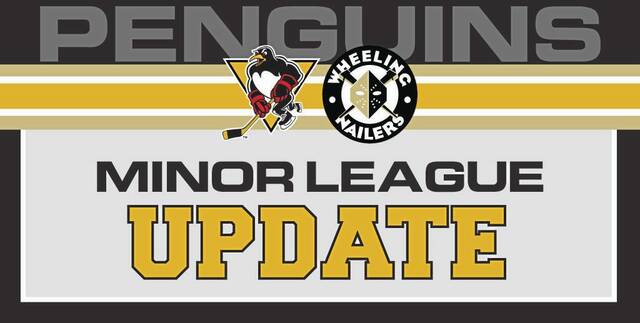A Pittsburgh Penguins-related item we dropped into “First Call” last week has really stayed with me through the weekend.
Tony Androckitis of Inside AHL Hockey posted these notes about the Penguins on both the NHL level in Pittsburgh and the AHL level in Wilkes-Barre/Scranton.
• “There are big changes coming for the Wilkes-Barre/Scranton Penguins moving forward, how they are operated and Pittsburgh’s overall presence around the team, including a much-needed increase in their day-to-day on-site involvement.”
• “Fenway Sports Group (FSG) has been working closely with Penguins head coach Mike Sullivan during the Pittsburgh Penguins transition between former GM Ron Hextall and whoever they hire to fill their current vacancy.
“Relative to the AHL club, I’m told FSG will mandate to their new GM that this AHL Penguins club needs to be highly competitive — on the persistent advice from Sullivan, specifically, in making sure the organization’s top prospects are developing in a winning environment.”
• “It might come as a surprise that Sullivan is so adamant about building/investing more in constructing an AHL roster as he has taken flack for barely giving the AHL Penguins’ call-ups — and young players like Jonathan Gruden — much of an opportunity in terms of ice time.
“‘This is a (Sullivan) thing more than whoever the new (GM) is, … and right now (Sullivan) has the hammer with the Fenway guys,’ one NHL source told InsideAHLHockey.com a few weeks ago.”
My initial reaction to all of that goes directly to one point that Androckitis made.
Yes, this does come as a surprise that Sullivan is making the AHL such a focus of the offseason because he seemed so reluctant to use Wilkes-Barre/Scranton (26-32-8-6) as a potential source to help solve some of the Penguins’ problems last year.
The team was slow to call up players that seemed to be deserving of chances. And when they were recalled, they were given minimal roles and spotty ice time. Filip Hallander played in just two NHL games and has since decided to go home to Sweden and play professionally there. Goalie Filip Lindberg signed a two-year contract with TPS in Finland’s Liiga.
The aforementioned Gruden got just three games. Valtteri Puustinen led the team with 59 points and wasn’t recalled at all.
Alex Nylander had 50 points in 55 games. He got a nine-game look with the Penguins in a pinch and didn’t appear to be overwhelmed at all. Defenseman Ty Smith, coveted in an offseason acquisition last summer, got just nine NHL games as well, and he was squirreled away with WBS (in part because of cap issues resulting from ineffective veteran contracts).
More sports
• 5 things to watch as Steelers begin organized team activities• Pitt lands 6-10 center, ex-Michigan 4-star recruit Papa Kante for its freshman class
• Tucupita Marcano becoming a bright spot for Pirates while serving as a stopgap at shortstop
But even if these players weren’t as worthy of NHL playing time in Sullivan’s eyes as they were to the fans, who was he playing in front of them? And who was the franchise leaning on or acquiring? Jeff Carter, Jan Rutta, Mikael Granlud, Jeff Petry, Dmitry Kulikov, Brock McGinn and Kasperi Kapanen.
Those were black-hole shifts for most of the season, yet Sullivan rarely played the WBS prospects in front of those aging, non-productive options. So, to Androckitis’ point, Sullivan must’ve thought that those WBS Penguins were either devoid of talent or getting very poor coaching. Yet, Androckitis added this last note about the AHL Penguins coaching staff.
“In talking with coaches around the AHL this season, the sentiment they expressed the most was just the way J.D. Forrest and his staff had such a well-structured team despite certainly not having the depth to match their opposition over the long run.”
OK. So it wasn’t the coaching. So I guess the Pens’ farm players just stink, or Sullivan isn’t using them right.
Or both.
I’m gonna go with “both,” but I’m mainly still putting the blame at Sullivan’s feet. I’m raising an eyebrow at the tone of his action plan to beef up the farm system because, for as much as we all can appropriately lambaste Ron Hextall for doing a bad job as Penguins general manager, he was tasked with trying to make sure the Penguins were competitive at the NHL level. And the AHL team was bereft of talent when Hextall got here.
Asking him to do a partial rebuild of the NHL team while simultaneously doing a full rebuild of the AHL team is an impossible ask—especially in 26 months.
So I get where Sullivan is coming from in so far as he wants to prioritize the importance of cultivating the minor league structure of the team. But it’s also on him — especially while the Penguins’ cap situation is as restrictive as it is — to use those AHL options on the bottom third of his roster more often.
That’s even if they don’t perform the way Matt Murray, Bryan Rust, Carter Rowney, Conor Sheary and Tom Kuhnhackl showed out during the 2016-17 Stanley Cup runs.
Those prospects still serve a cheaper, better purpose than sinking or swimming (more often sinking) with newly acquired mid-tier veterans who were so often logging empty minutes.
And, oh, by the way, here’s another question for FSG. Why does a coach who hasn’t won a playoff series since 2018 get to have such a “hammer” in setting organizational agendas anyway?
Especially while you are, theoretically, trying to hire his boss.
In this week’s Breakfast With Benz hockey podcast, Tim Benz and Brian Metzer examine the conference finals, Jaromir Jagr’s return visit to Pittsburgh, the Pens GM vacancy, and the situation with Logan Cooley and Arizona.




